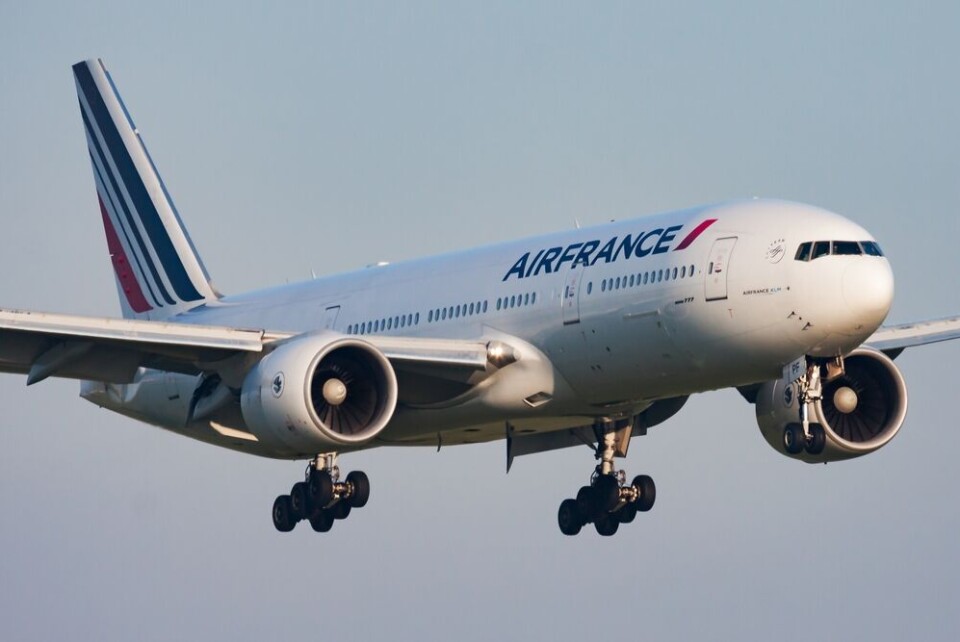-
New Paris-Jersey direct flight to launch this summer
Loganair route forms part of Channel Island’s tourism boost plan
-
Death of right-wing protester in Lyon sparks fears of further political violence
Quentin D, 23, died after reportedly being ambushed by far-left activists near site of political conference
-
Red flood alerts continue in south-west - and more heavy rain expected
Garonne river is particularly affected. French weekly weather forecast February 16 - 20
Is France really respecting the ban on short domestic flights?
Exceptions to the new 2.5-hour train journey rule mean that the number of flights affected is smaller than you might think

After the ban on short domestic flights officially came into force in France on Tuesday, May 23, we look at whether the pledge is really having the intended effect of reducing flights and emissions.
The law bans flights that could be completed by a train journey of 2.5 hours or less in France.
Transport Minister Clément Beaune called the move “a world first…which is fully in line with the Government's policy of encouraging the use of modes of transport that emit less greenhouse gas”.
President Emmanuel Macron tweeted that the law was an example of a “kept promise”.
Interdire les lignes aériennes en cas d’alternative de moins de 2h30 en train.
— Emmanuel Macron (@EmmanuelMacron) May 23, 2023
Je m’y suis engagé.
Nous sommes les premiers à le faire. pic.twitter.com/hDYpz5Osms
Roissy flights still operating
However, the law does have two exceptions that stop it from being applied as simply as the ‘2.5-hour train’ rule would suggest.
These include:
- The calculation of the train journey time. For example, Paris-Orly is within the Paris boundaries, so a train journey to Paris would be calculated to the city centre. But Roissy Charles-de-Gaulle is further away, so a train journey ‘to Paris’ from there would take longer.
- The time of train services. Visitors must be able to spend at least eight hours in the destination city for the rule to apply (meaning there is a gap of at least eight hours between return trains). Some services do not fit into this schedule, making them exempt.
As a result, flights from Charles-de-Gaulle are continuing, including:
- Paris Charles-de-Gaulle to Lyon: Five flights per day
- Paris CDG-Bordeaux: Five flights per day
- Paris CDG-Nantes: Four flights per day
- Paris CDG-Rennes: One flight per day
Including return flights, this adds up to 30 flights per day, for destinations that technically can be reached by a train journey of 2.5 hours or less.
This is because Charles-de-Gaulle is not considered to be the same as central Paris. As Roissy has a TGV station, the flight and train times are calculated as, for example, Roissy-Nantes, rather than Paris-Nantes.
It takes longer than 2.5 hours for this journey, so the flights remain in place.
Only three routes cancelled
And, because of the ‘eight-hour’ rule, flights of less than an hour are continuing between Paris CDG and Lyon, and Marseille, because there are not enough services to allow someone to make the return journey in a single day, every day.
This is despite the train journey time clocking in at just over two hours.
In fact, the new rule has only successfully cancelled three routes:
- Paris Orly-Nantes
- Paris Orly-Bordeaux
- Paris Orly-Lyon
In addition, these routes were already not in operation, because the government had already stopped Air France from operating them in 2020, at the height of Covid, due to a lack of financial support.
Ultimately, this means that at least in terms of the number of flights in operation, the new law has not changed much.
‘Not effective in reducing carbon emissions’
The ban has received criticism from within the aviation industry as well.
Thomas Juin, the president of the Union of French Airports, has also said that “the ban on these flights will not be very effective in reducing carbon emissions”.
He said: “We challenge this idea that reducing carbon emissions from the aviation sector could involve banning air routes in the coming years… the routes concerned represent 0.24% of air transport emissions in France.”
He also said that some of the flights offer important social links, in comparison to other routes that see fewer passengers but more emissions, adding that the ban “underestimates the impact and the social and economic usefulness of an air link” and pointed out that the Orly-Bordeaux route carries 600,000 passengers per year.
Related articles
Which routes will be affected by French short domestic flight ban?
New UK-France flights, TGV change, tunnel closed: 8 travel updates
























